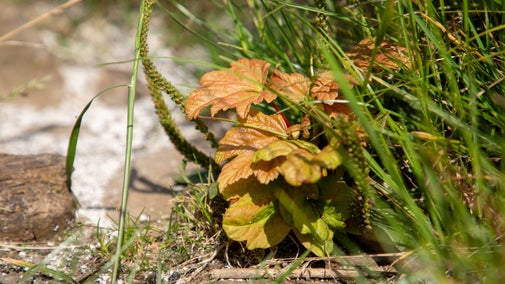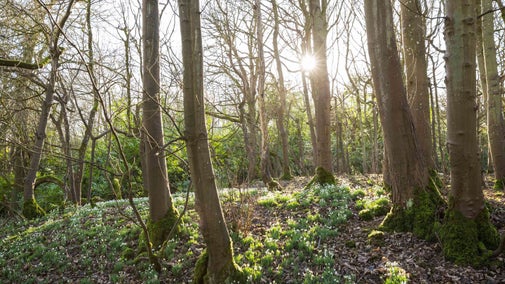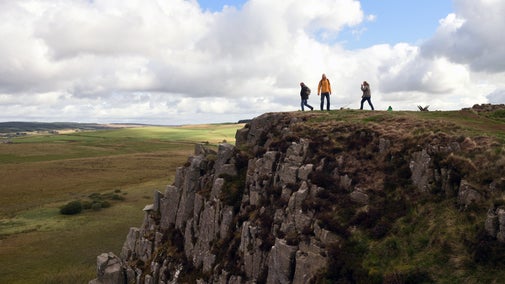
Discover more at Hadrian's Wall
Find out how to get to Hadrian's Wall, where to park, the things to see and do and more.

Inscribed a UNESCO World Heritage Site in 1987, there is plenty to discover at Hadrian’s Wall and Housesteads Fort. A landscape with historic landmarks, you might also spot some special wildlife on your visit.
Stretching 80 miles (120 km) from the Solway Coast in Cumbria to Wallsend near Newcastle Upon Tyne, Hadrian's Wall is an impressive sight. The UNESCO World Heritage Site totals 110 miles, continuing at both sides from Arbeia in South Shields to Ravenglass in Cumbria.
The National Trust cares for six of the most iconic miles of Hadrian’s Wall, from Sewingshields in the East to Cawfields in the west, including the iconic Sycamore Gap.
The wall has 16 permanent bases, of which Housesteads Fort is one of the best preserved. Excavations at the Fort revealed a turreted curtain wall, three barrack blocks and well-preserved latrines.
With a history that goes back almost 2,000 years, you can imagine how life was for the 800 Roman soldiers based here. Wander the remains of the barrack blocks, the commandant’s house and see if you can find some of the oldest toilets you'll ever see!
Placed astride a narrow nick in the ridge top which allowed some access to the north, Milecastle 37 is now in part obscured by the 19th century excavation spoil heaps. The Milecastles were the earliest phase of building the wall, acting as rest stops for soldiers and travellers.

Sycamore Gap is famous for its scene-stealing moment in Robin Hood Prince of Thieves starring Kevin Costner. The wall surrounding the gap shows it was repaired with lime mortar and the construction deposited sealed pottery datable to the late 2nd century.
For miles around, Crag Lough dominates the wall's landscape, almost always in shade by the vertical towering of the Whin Sill. The Lough is home to mute swans, busy coots, mallards, tufted ducks and goldeneyes, and you can even climb the Crag if you fancy it.

Hadrian's Wall has lush green fields, plenty of watering holes and lots of nooks and crannies - an ideal home for a range of wonderful wildlife, including some rare species such as the large heath butterfly.
Birds to look out for include the house martin, wheatear and meadow pipit. You will also see swallows, who return each year after spending the winter in Africa.
Butterflies to spot include the large heath butterfly, and the orange tip.

Find out how to get to Hadrian's Wall, where to park, the things to see and do and more.
Housesteads Visitor Centre is a great place to grab some refreshments during your day out at Hadrian's Wall.

Discover the history of Hadrian’s Wall, which was designated a UNESCO World Heritage site in 1987.

The National Trust are taking the next steps in the story of the Sycamore Gap tree.

Find out how our rangers (with the help of a helicopter) repaired a stretch of eroded footpath along Hadrian’s Wall at Bogle Hole, using 35 tonnes of locally sourced stone.

Plan a visit to one of the special countryside places in our care and discover the benefits of being in the great outdoors. Pack your walking boots and get ready to explore woodlands, valleys and rivers.

Explore some of the finest landscapes in our care on coastal paths, accessible trails, woodland walks and everything in between. Find the best places to walk near you.

Explore the North East's wide open spaces on foot or by bicycle. There are nature reserves, vast estates and huge swathes of undulating countryside to discover, as well as plenty of wildlife to spot.
